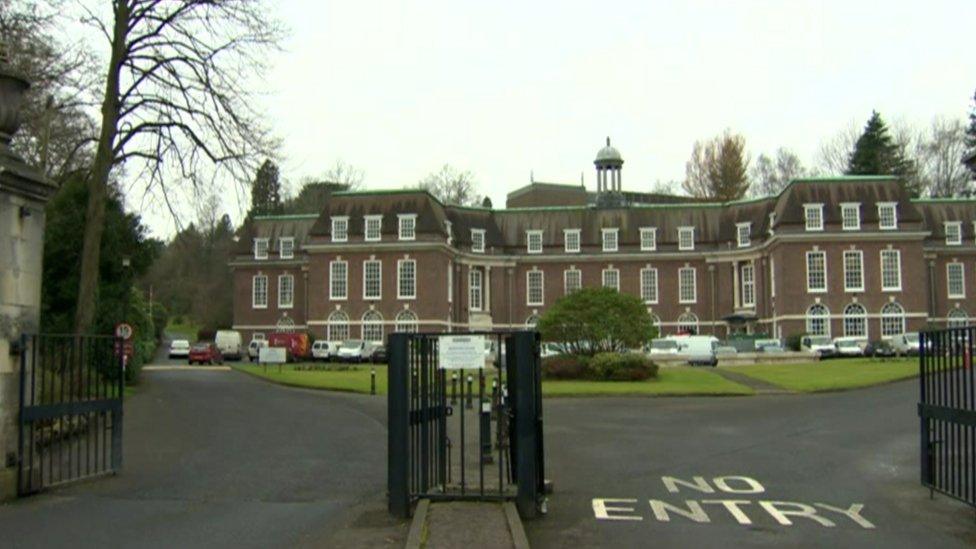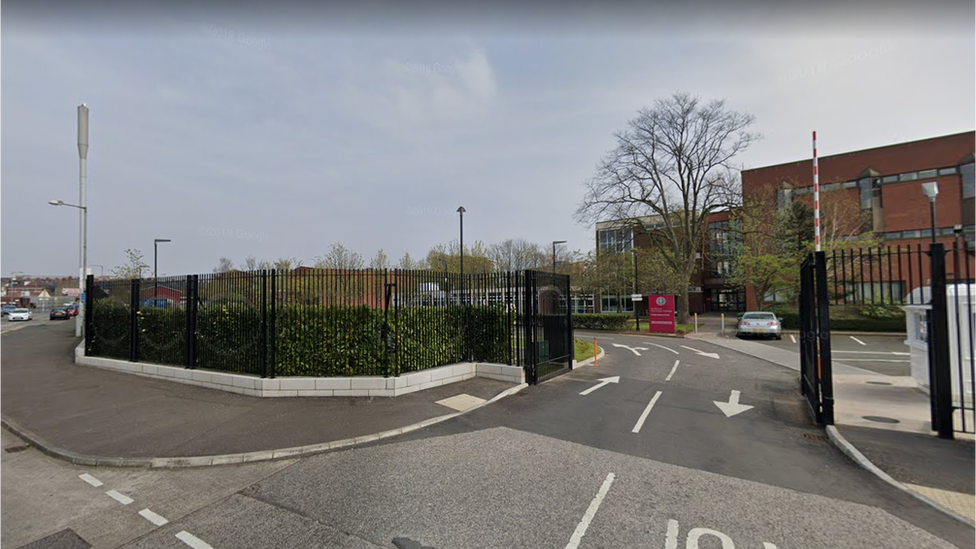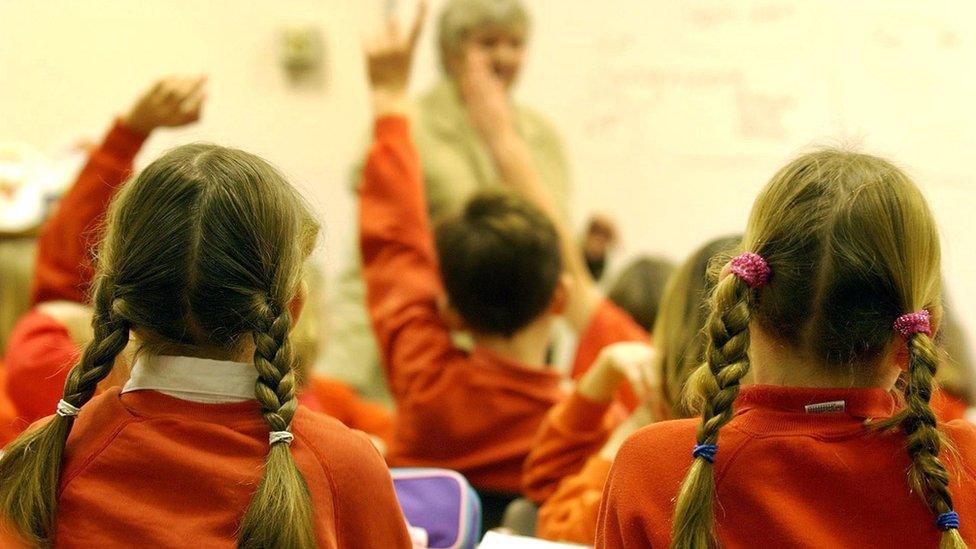Teacher training in NI 'reinforces sectarian divide'
- Published

How teachers are trained in Northern Ireland reinforces "educational division and duplication" along sectarian lines.
That is argued in a newly published briefing paper from Ulster University's Unesco centre of education.
It calls for a "radical review and redesign" of initial teacher education in Northern Ireland.
There have been previous attempts to change the way teachers are trained in NI, most recently in 2015.
There are four institutions in Northern Ireland who provide Bachelor of Education (BEd) or Postgraduate Certificate in Education (PGCE) degrees.
They are Stranmillis University College, St Mary's University College and the schools of education at Queen's University (QUB) and Ulster University (UU).
"Demand for places in these institutions is consistently high and the application process is very competitive," the Ulster University (UU) report into community division and student separation in initial teacher education said.
But it also said that "the training of teachers along sectarian lines became a feature of the NI education system" after partition and has not substantially changed.
The paper from UU's Unesco centre of education acknowledges that all four institutions are open to applications from students from all sections of the community.
It also said that Stranmillis and St Mary's regularly collaborated, most recently to provide the Catholic Certificate in Religious Education to students at Stranmillis.
"There are however indications that the composition of the student bodies at the two University Colleges still strongly reflects the religious divide," the paper said.

Stranmillis University College is one of two teacher training colleges in Belfast
"In effect, each college has tended to draw its students from one side of a segregated school sector, place them in the same sector for teaching practice and that, after graduation, the students return to the same sector for employment."
Previous research from the Unesco centre has suggested that relatively few Protestant teachers are employed in Catholic schools or Catholic teachers in many controlled schools.
'Endemic' over-production of teachers
The researchers also said that students who trained at teachers at QUB and UU were also often "socially separated."
"It is probable that a high proportion of PGCE students will also have passed through the separated systems of schooling and that, during their undergraduate years, they may have had minimal meaningful contact with students from 'the other side'," the UU paper said.
It also said that there was an "endemic" over-production of teachers in NI "sustained from the public purse".
Around 600 teachers qualify from the four institutions in Northern Ireland each year.
"The Department for the Economy has however published research which indicates that, at current levels, there will be an oversupply of around 140 teachers per annum over the next decade," it said.
'Exporting' teachers to England
However, a number of teachers who initially train in Northern Ireland subsequently seek teaching posts elsewhere in the world.

St Mary's University College on the Falls Road, Belfast
"It is difficult to avoid the conclusion that the system is - at least partially - either producing teachers for export to fill vacancies elsewhere (particularly in schools in England) or creating a generation of professionals that will struggle to find employment as a teacher locally and may ultimately be forced to leave the profession," the UU report argued.
"The problems of community division are complex, and they are woven across many dimensions of life in NI," the report concluded.
"The separation of education is not only indicative of this tangled mess but significantly also makes a considerable contribution to its reproduction."

"A radical review and redesign of Initial Teacher Education may provide the starting point from which the wicked problem of educational division and duplication can start to be unravelled."
While the research from the Unesco Centre for Education is independent, its publication was partly funded by the Integrated Fund for Education.
- Published7 June 2019

- Published20 August 2020
